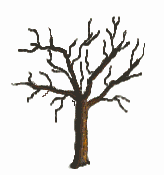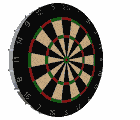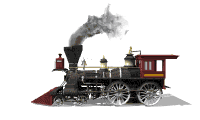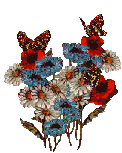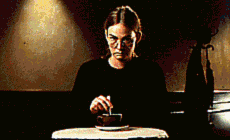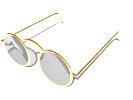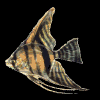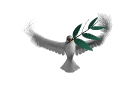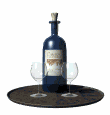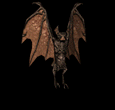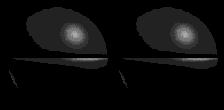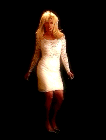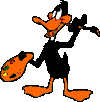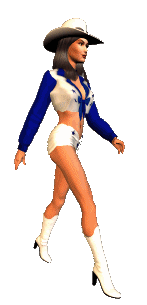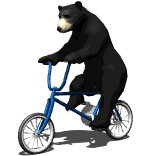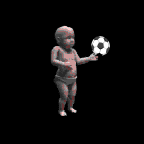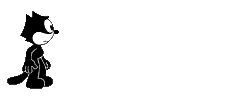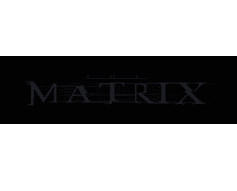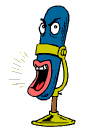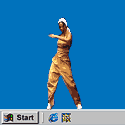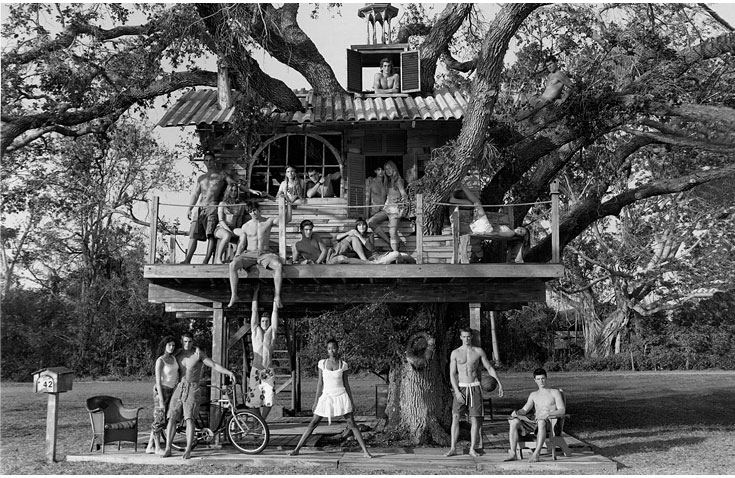Wednesday, November 17, 2004
Grenade marked `4 my buddy'
Sgt. Marc Veen, a 24-year-old Chicagoan, worked his way across the roof of a house on Route Henry and located an insurgent sniper who had set up his own rooftop vantage point a third of a mile away.
Adjusting for the distance and a light south wind, Veen held his breath, tightened his right index finger on the trigger of an M-14 rifle named Lucille, and hit the crouching Iraqi with a shot to the stomach. Two more rounds and the insurgent stopped moving.
Veen put the first bullet's brass casing into the webbing of his vest. It was a kill, his fourth since the fighting in Najaf in August.
"He would have gotten one of my buddies," Veen said.
Veen and other Army troops with the 2nd Battalion, 7th Cavalry Regiment of the 1st Cavalry Division spent Sunday defending Route Henry, the main north-south supply route through the city of Fallujah.
The street's name, Henry, is part of the U.S. military's system: All north-south streets are given male names, and all east-west streets have female names.
On Sunday, it was the 2-7's job to help keep Route Henry open for Marines who were attacking holdout fighters in the southern end of Fallujah and were using the road as a lifeline.
The battalion held three houses along a mile-and-a-half stretch of Route Henry. The devastation up and down the stretch was numbing. Holes dug for roadside bombs littered the median, and craters pocked the street. Buildings with holes left by American explosive rounds lined the street. Rubble was everywhere, and electrical cords dangled like jungle vines.
Veen's group, Cougar Company, was on the southern end, where the remaining resistance was toughest. The northernmost group, Apache Company, exhausted from three days of fierce fighting, crawled overnight into a home on the quieter end of the 2-7's territory.
Soldiers found colorful mattresses leaning on a wall and spread them on a stone floor. Bulletproof vests leaned against walls as young men with far-off stares looked at nothing, or slept hard.
One of the few awake was Sgt. Charles Thornton, 23, a team leader from Norristown, Pa. He had been fighting since Thursday night. A good friend in another platoon was killed storming a house on Saturday.
"It hurts," Thornton said. "I can't really think about it because I have to look out for my guys."
Grief he pushed off. Rage he kept.
As his team slept, he used a marker to write "This is 4 my buddy" on a 40 mm grenade for his M203 launcher.
"His wife lives right across the street from my wife," he said softly. "I'm all about fighting."
At Comanche Company, halfway down 2-7's stretch of road, palm fronds snapped by bullets hung from the tree in the front yard. Soldiers lounged inside with pulp fiction or napped in darkened rooms.
On the walls facing the street in front of their position, a story of Fallujah's fight was told in paragraphs of Arabic graffiti.
"Jihad ... Jihad ... Jihad. God is greatest, and Islam is going to win," declared a wall on the east side of the street. Iraqi Army soldiers had spray-painted through the words "Jihad."
On the west side of the street, troops of the Iraqi 4th Battalion, attached to the 2-7 to help guard Route Henry, expanded on their message:
"Jihad means fixing your country. The Iraqi Army are heroes, so stop fighting," the new graffiti read, along with profanity directed at the insurgents.
Down south, Cougar Company was guarded by Veen and other snipers on the roof. Its troops hugged rifles and dozed in flak jackets. They contended with sniper fire throughout the day.
At midday, battalion officers stopped at the house in Bradley Fighting Vehicles and hurried through the front door.
While battalion commander Lt. Col. James Rainey conferred with 29-year-old Cougar leader Capt. Pete Glass, the battalion chaplain gathered soldiers for a short prayer service in the ruined kitchen of the house.
The chaplain, Capt. Jonathan Fowler, quoted from Phillipians, Chapter 4, Verse 13: "I can do all things through Christ, who strengthens me."
The Apostle Paul wrote the passage while in prison, Fowler told the troops, who could relate to privation.
Fowler preached with his right hand raised and eyes clenched shut, ignoring muffled blasts from the street.
"We pray to the heavenly father for our wives, and children, and parents ...," he said.
"Give us victory, victory, victory."
NOTES: IRAQ IN TRANSITION: HOUSE-TO-HOUSE FIGHTING.
Sgt. Marc Veen, a 24-year-old Chicagoan, worked his way across the roof of a house on Route Henry and located an insurgent sniper who had set up his own rooftop vantage point a third of a mile away.
Adjusting for the distance and a light south wind, Veen held his breath, tightened his right index finger on the trigger of an M-14 rifle named Lucille, and hit the crouching Iraqi with a shot to the stomach. Two more rounds and the insurgent stopped moving.
Veen put the first bullet's brass casing into the webbing of his vest. It was a kill, his fourth since the fighting in Najaf in August.
"He would have gotten one of my buddies," Veen said.
Veen and other Army troops with the 2nd Battalion, 7th Cavalry Regiment of the 1st Cavalry Division spent Sunday defending Route Henry, the main north-south supply route through the city of Fallujah.
The street's name, Henry, is part of the U.S. military's system: All north-south streets are given male names, and all east-west streets have female names.
On Sunday, it was the 2-7's job to help keep Route Henry open for Marines who were attacking holdout fighters in the southern end of Fallujah and were using the road as a lifeline.
The battalion held three houses along a mile-and-a-half stretch of Route Henry. The devastation up and down the stretch was numbing. Holes dug for roadside bombs littered the median, and craters pocked the street. Buildings with holes left by American explosive rounds lined the street. Rubble was everywhere, and electrical cords dangled like jungle vines.
Veen's group, Cougar Company, was on the southern end, where the remaining resistance was toughest. The northernmost group, Apache Company, exhausted from three days of fierce fighting, crawled overnight into a home on the quieter end of the 2-7's territory.
Soldiers found colorful mattresses leaning on a wall and spread them on a stone floor. Bulletproof vests leaned against walls as young men with far-off stares looked at nothing, or slept hard.
One of the few awake was Sgt. Charles Thornton, 23, a team leader from Norristown, Pa. He had been fighting since Thursday night. A good friend in another platoon was killed storming a house on Saturday.
"It hurts," Thornton said. "I can't really think about it because I have to look out for my guys."
Grief he pushed off. Rage he kept.
As his team slept, he used a marker to write "This is 4 my buddy" on a 40 mm grenade for his M203 launcher.
"His wife lives right across the street from my wife," he said softly. "I'm all about fighting."
At Comanche Company, halfway down 2-7's stretch of road, palm fronds snapped by bullets hung from the tree in the front yard. Soldiers lounged inside with pulp fiction or napped in darkened rooms.
On the walls facing the street in front of their position, a story of Fallujah's fight was told in paragraphs of Arabic graffiti.
"Jihad ... Jihad ... Jihad. God is greatest, and Islam is going to win," declared a wall on the east side of the street. Iraqi Army soldiers had spray-painted through the words "Jihad."
On the west side of the street, troops of the Iraqi 4th Battalion, attached to the 2-7 to help guard Route Henry, expanded on their message:
"Jihad means fixing your country. The Iraqi Army are heroes, so stop fighting," the new graffiti read, along with profanity directed at the insurgents.
Down south, Cougar Company was guarded by Veen and other snipers on the roof. Its troops hugged rifles and dozed in flak jackets. They contended with sniper fire throughout the day.
At midday, battalion officers stopped at the house in Bradley Fighting Vehicles and hurried through the front door.
While battalion commander Lt. Col. James Rainey conferred with 29-year-old Cougar leader Capt. Pete Glass, the battalion chaplain gathered soldiers for a short prayer service in the ruined kitchen of the house.
The chaplain, Capt. Jonathan Fowler, quoted from Phillipians, Chapter 4, Verse 13: "I can do all things through Christ, who strengthens me."
The Apostle Paul wrote the passage while in prison, Fowler told the troops, who could relate to privation.
Fowler preached with his right hand raised and eyes clenched shut, ignoring muffled blasts from the street.
"We pray to the heavenly father for our wives, and children, and parents ...," he said.
"Give us victory, victory, victory."
NOTES: IRAQ IN TRANSITION: HOUSE-TO-HOUSE FIGHTING.
Subscribe to Comments [Atom]

